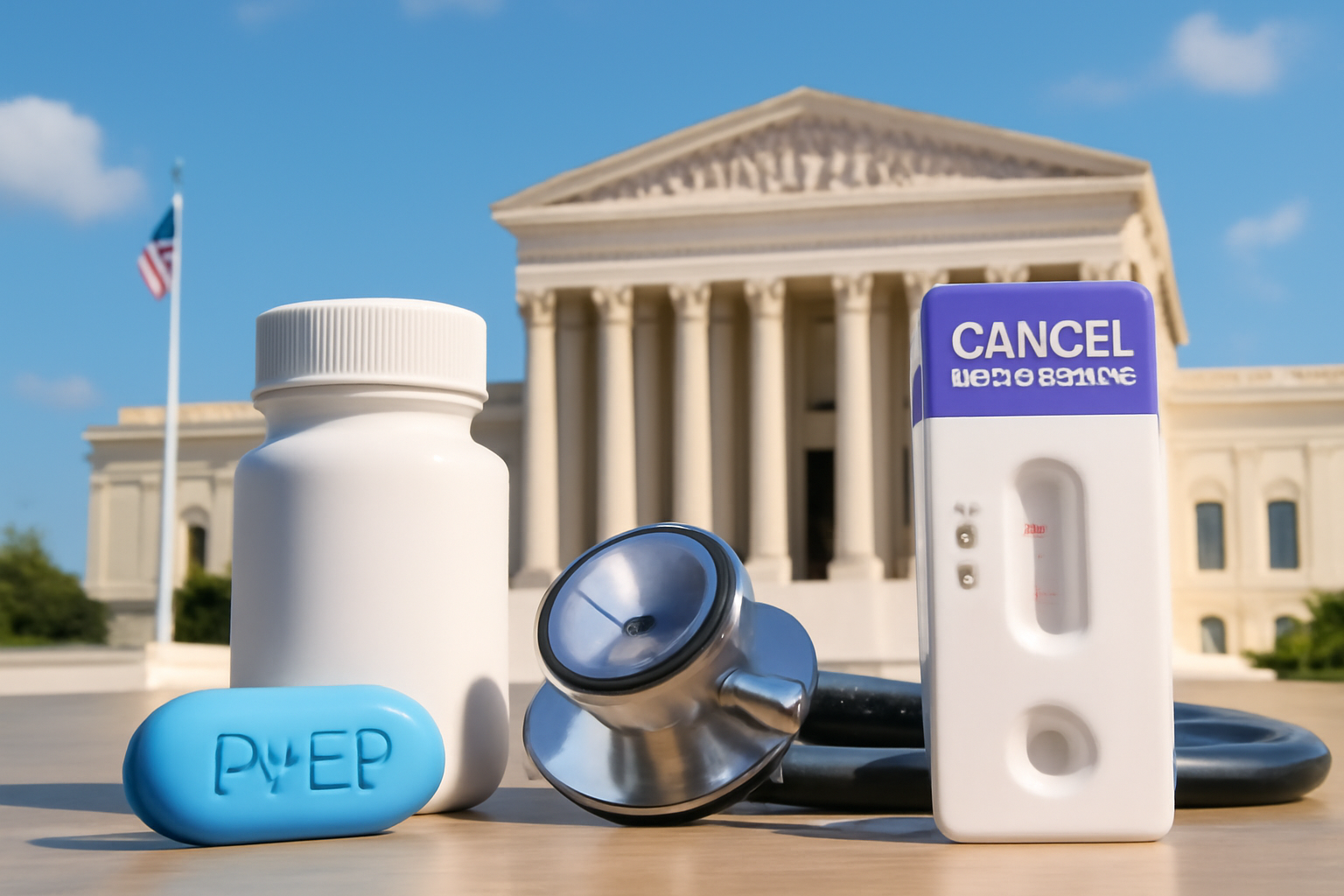
The Supreme Court is set to make a pivotal decision that could greatly impact the healthcare landscape for many individuals. At the heart of the case is whether insurance companies will be mandated to provide coverage for pre-exposure prophylaxis (PrEP) for HIV prevention, as well as essential cancer screenings. This decision holds significant implications, especially for communities that rely heavily on these preventive healthcare measures.
The Importance of PrEP in HIV Prevention
PrEP, or pre-exposure prophylaxis, is a medication taken by individuals at high risk of HIV infection to prevent the virus from establishing a permanent infection. Since its approval, PrEP has revolutionized the fight against HIV by providing an effective method for individuals to protect themselves. Studies have shown that when taken as prescribed, PrEP is over 90% effective in reducing the risk of HIV transmission.
Access to PrEP is crucial for many, particularly those in the LGBTQ+ community, where the rates of HIV transmission have historically been higher. The medication not only provides a layer of protection but also offers peace of mind to those who may be vulnerable due to various social and economic factors.
The Role of Cancer Screenings in Preventive Health
Cancer screenings, such as mammograms and colonoscopies, are essential components of preventive healthcare. These screenings allow for the early detection of cancer, significantly increasing the chances of successful treatment and survival. For individuals who may be genetically predisposed or have other risk factors, regular screenings are vital in catching cancer at its most treatable stages.
However, despite their importance, access to these screenings is not always guaranteed. Many individuals face barriers such as lack of insurance coverage, high out-of-pocket costs, and logistical challenges that prevent them from getting the screenings they need.
The Legal and Social Implications
The Supreme Court's decision on whether insurance must cover PrEP and cancer screenings will have far-reaching implications. A ruling in favor of mandatory coverage would solidify the importance of preventive healthcare and ensure that more people have access to these life-saving measures. It would also set a precedent for how healthcare is approached in the United States, potentially paving the way for broader coverage of other preventive services.
On the other hand, a decision against mandatory coverage could lead to significant setbacks in public health efforts to combat HIV and cancer. Without insurance coverage, the financial burden of these preventives would likely fall on individuals, many of whom may not be able to afford them. This could result in increased rates of HIV transmission and later-stage cancer diagnoses, both of which are more difficult and costly to treat.
Impact on Marginalized Communities
The outcome of this case is particularly important for marginalized communities, including people of color, low-income individuals, and the LGBTQ+ community. These groups often face systemic barriers to healthcare, and insurance coverage for preventive services like PrEP and cancer screenings can help bridge some of these gaps.
For LGBTQ+ individuals, who may already face discrimination in healthcare settings, the assurance of coverage for PrEP is a critical component of maintaining their health and well-being. Similarly, ensuring access to cancer screenings can help reduce health disparities and improve outcomes for those who are often underserved by the healthcare system.
Conclusion
As the Supreme Court deliberates on this momentous case, the eyes of many are fixed on the potential outcomes. The decision will not only affect those directly involved but will also send a powerful message about the value placed on preventive healthcare in society. Regardless of the outcome, it is clear that the fight for equitable healthcare coverage is far from over. Advocates and communities must continue to push for policies that prioritize the health and well-being of all individuals, particularly the most vulnerable among us.
The coming months will be crucial as we wait for the Supreme Court's verdict. This decision is a reminder of the ongoing struggle for access to healthcare and the importance of standing together to advocate for the rights and health of every individual.
Related Posts
Triumphant Trans Woman Wins Legal Battle and Inspires Others to Stand Up for Their Rights
Breaking new ground: a landmark victory in transgender rights After battling in courtrooms and enduring endless challenges, Diana Portillo, a transgender woman, has secured a monumental victory in her decade-long fight against workplace discrimination. The result? Nearly $1 million awarded in a historic settlement. But this isn't just a win on paper—it represents a powerful precedent in combati [...]
Pride Month in Latin America: Protests and Demands for Equality
**Celebrating Pride and advocating LGBTQ+ rights in Latin America** Pride Month in Latin America was a lively mix where celebration met activism. Communities united, not just throwing a party but making a stand—demanding equality and pushing governments toward better protection and rights recognition. Throughout Latin America, pride events erupted in marches and cultural displays, each with a c [...]
Transgender Erasure Actions Implemented by National Park Service
```html Trump administration's impact on national park service and transgender recognition The Trump administration made notable moves in undermining transgender representation, which included directing agencies like National Park Service not include "T" and "Q" when they refered “LGBTQ” in any official communication. This move seems part a broader plan by this administration aimed at reducin [...]